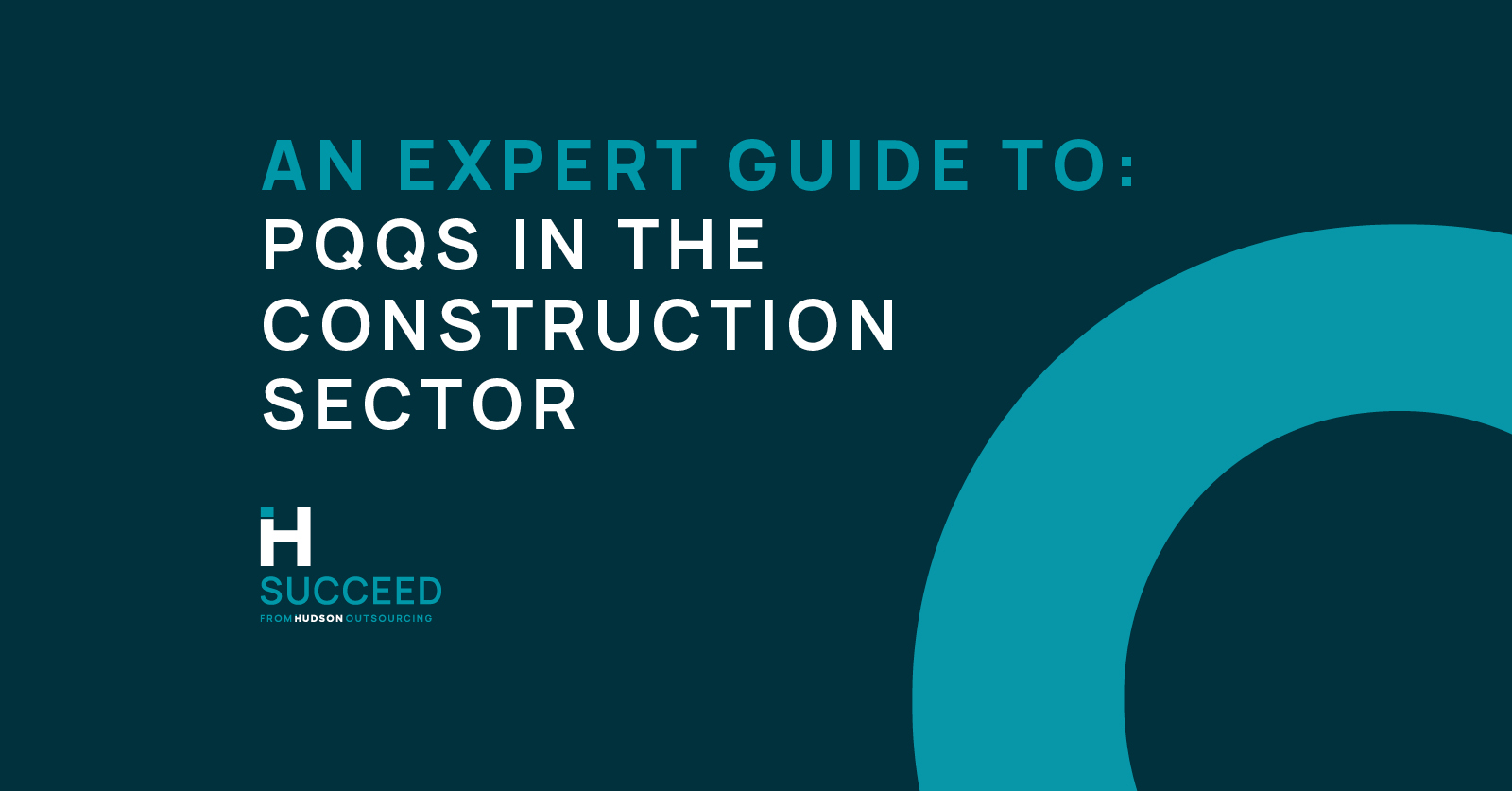Pre-Qualification Questionnaires in the Construction Industry
Last updated: Dec 17, 2021 @ 11:05 am
The term ‘standard selection questionnaire’ is rather self-explanatory – these questionnaires, therefore, are often standard sets of questions buyers pose to potential suppliers as part of the tender process.
So what is a pre-qualification questionnaire in construction?
Pre-qualification questionnaires in construction are used by buyers as the first stage of selection. Typically, this is a box-ticking exercise, in which you put down basic company information and check statements of non-collusion.
How do they evaluate my business?
Pre-qualification questionnaires are designed to act as the first stage of vetting, to ensure that your business:
- Are financially stable
- Meets the buyer’s due diligence requirements
- Possesses the appropriate experience and technical capability to deliver the works
Pre-qualification questionnaires in construction can vary from buyer to buyer. They may utilise different names such as SQ (selection questionnaire) or SSQ (standard selection questionnaire).
Pre-qualification questionnaires are often marked using the pass/fail scoring methodology. They have clear yes/no answers or minimum scores for each section to be considered for the next stage.
Depending on whether the process follows the open or closed procedure, the PQQ and initial tender may be required to be completed at the same time. For the latter, closed procedure, you must first pass this first stage of vetting prior to completing the main tender exercise.
Technical and professional ability
This is one of the few sections on a typical PQQ where your responses are marked with scores, often with a minimum threshold that you are required to pass to the next stage. The typical question, shared across lots of pre-qualification questionnaires in construction is:
Please provide details of up to three contracts, in any combination from either the public or private sector; voluntary, charity or social enterprise (VCSE) that are relevant to our requirement. VCSEs may include samples of grant-funded work. Contracts for supplies or services should have been performed during the past three years. Works contracts may be from the past five years.
The underlined sections are the key parts of the question we need to consider. Word counts can vary from buyer to buyer – some requiring from as little as 200 words to larger, 1000+ word responses. Regardless, you should break the case study down into key sections, detailing:
- The situation: An introduction
- The task: The specifics of what we were tasked to do, such as conducting boiler services and repairs across 1000+ plus properties
- The actions: How we delivered the contract, including key challenges or issues we faced
- The results: A final ‘why us’ summary point – detail the successes of the contract
We call this our STAR approach and has played an invaluable role in winning over 87% of PQQ submissions for our clients.
You still have to sell your business
Although this is still very much a simple, factual recall of what you have done, you want to still make sure that what you’re saying is:
- Relevant to the scope of works for the contract your bidding for
- Demonstrates how this performance/experience makes you a suitable provider
So, for example, let’s say you’re bidding to provide void property repairs for a local council. You will want to, if you can, utilise three examples of where you have done this previously.
Simply put, we will want to draw as many parallels in our case studies with the scope of works we’re bidding for as possible. Talk about key challenges and lessons learnt that have had a direct impact on how you work today, and how these lessons learnt will prevent the same problem occurring for the buyer.
The dreaded PAS-91…
PAS-91s are becoming increasingly popular in the construction industry, which has been developed by the British Standards Institute to save companies from filling out several different PQQs. Basically, a PAS91 is a type of pre-qualification questionnaire that is slightly elongated but has the same basic ‘what you have done’ approach.
The main benefits of completing a PAS-91 are:
- Exemption is granted from some core sections should you hold the required accreditations
- For the core modules, questions are standardised, and as such, you can develop standard responses to use every time
- The above examples will allow you to save time in the long run
Great news for those with accreditations
If you’ve spent company time to gain Constructionline – especially the Gold certificate – you will automatically be exempt from completing the most time-consuming parts of PAS91 questionnaires, such as quality management, health and safety, environment and equality and diversity sections. As long as the appropriate procedures are in place for all, anyone can apply for Constructionline, an invaluable tool should you find yourself bidding for a lot of construction contracts. There may be occasions where the buyer still requires to see this, but we find this extremely rare and maintaining the ConstructionLine status, definitely gives you that advantage over those who don’t possess this.
Exemption from individual categories can also be granted through holding certain accreditations – such as an ISO 9001 quality management certificate for the performance management section. This is typically standard, however, there are sometimes slight variations from buyer to buyer – so check carefully.
However, it’s not all doom and gloom, as those without such accreditations can, in some cases, still pass, it just means more work. As such, depending on where you’re lacking in accreditations, you will have to answer questions in the optional and core modules, such as:
- Health and safety
- Quality management
- Environmental management
- Equality and diversity
These sections will go into detail regarding your approach to the above, with evidence requested to back up what you’re saying.
Health and safety
It goes without saying that any buyer will need their suppliers to deliver the works as safely and responsibly as possible, with clear levels of accountability and responsibility to ensure the works are delivered in accordance with the appropriate regulations, such as CDM 2015 and the Health and Safety At Work Act 1974.
In typical PAS91s, you are exempt from completing this section if:
- You’ve completed a PAS-91 question set within the past 12 months
- You hold SSIP health and safety accreditation such as CHAS or SafeContractor
- You have a formally recognised management system such as OHSAS 18001:2007 or ISO 45001:2018
If not, you will be asked a series of questions regarding your health and safety policies and procedures, and you will be required to evidence your approach through the provision of policies and training materials. Areas covered include:
- Training and keeping staff up to date regarding health and safety practices
- Reviewing policies and procedures and compliance with best practice
- Risk assessment and accident reporting
Quality
This section will present a series of questions that suppliers will have to answer regarding their approach to performance management. Typically, this includes the likes of:
- Audits, inspections and other means of performance management
- Quality assurance procedures and other proactive means of ensuring performance, such as training
- How you manage underperformance and discuss this with employees
- Reviews of policies and procedures and compliance with best practice
Luckily, those with certified ISO 9001 quality management systems, and can produce a certificate to prove this, are exempted from completing this section. If not, evidence you can provide can include the likes of policies, procedures, training records and even inspection reports.
Environment
Much like the quality management section, this section can be bypassed if you hold an ISO 14001 environmental management certificate. Alternatively, you will be required to evidence your responses to the questions with the provision of policies, procedures and any appropriate documentation to prove that you are undertaking the appropriate due diligence and means to minimise your environmental impact.
Areas covered can include:
- Carbon emissions reduction and waste management
- Training and maximising environmental awareness
- Policies, procedures and reviews to ensure compliance with best practice
Equality and diversity
Again, a buyer will want to fulfil their due diligence by ensuring that the organisation has the appropriate measures in place to maximise opportunities for everyone – regardless of sex, relationship status, or ethnicity, in line with the Equality Act 2010. As such, questions in this section will cover areas such as:
- Training provided to staff regarding equal opportunities
- Means in place to mitigate prejudice/discrimination from the application process
Relationship with tenders
Buyers can potentially receive hundreds of tender submissions for a single contract, and as such, it’s in their interest to ensure that suppliers are both vetted and checked to ensure they both fulfil their legal obligations but also that inadequate suppliers can be excluded as early as possible, saving both time and money.
Need support?
Not everybody has the time or resources when it comes to tendering for contracts. This is where we’re here to help.
Our Tender Writing service covers PAS-91s and pre-qualification questionnaires, in which we will not only fill the basic information in on your behalf but complete the written, technical and professional ability sections and/or PAS91 modules where the buyer requires.
Alternatively, our Tender Ready service will see our team of bid writers prepare case studies and policies – both of which will be essential in passing pre-qualification questionnaires and PAS91s – in-line with best practice across the industry.
If you are looking for new opportunities for construction projects, look no further than Construction Tenders. Our dedicated, tender tracking portal, sources tendering opportunities, specifically for the construction sector. Get in touch with the team to book a free live demo and see how the system can help your business.
If there’s anything we can help with, no matter how big or small, get in touch with our bid writers and who can help with the bid writing process.
Find more helpful tips and advice in our blogs. We cover topics including:










